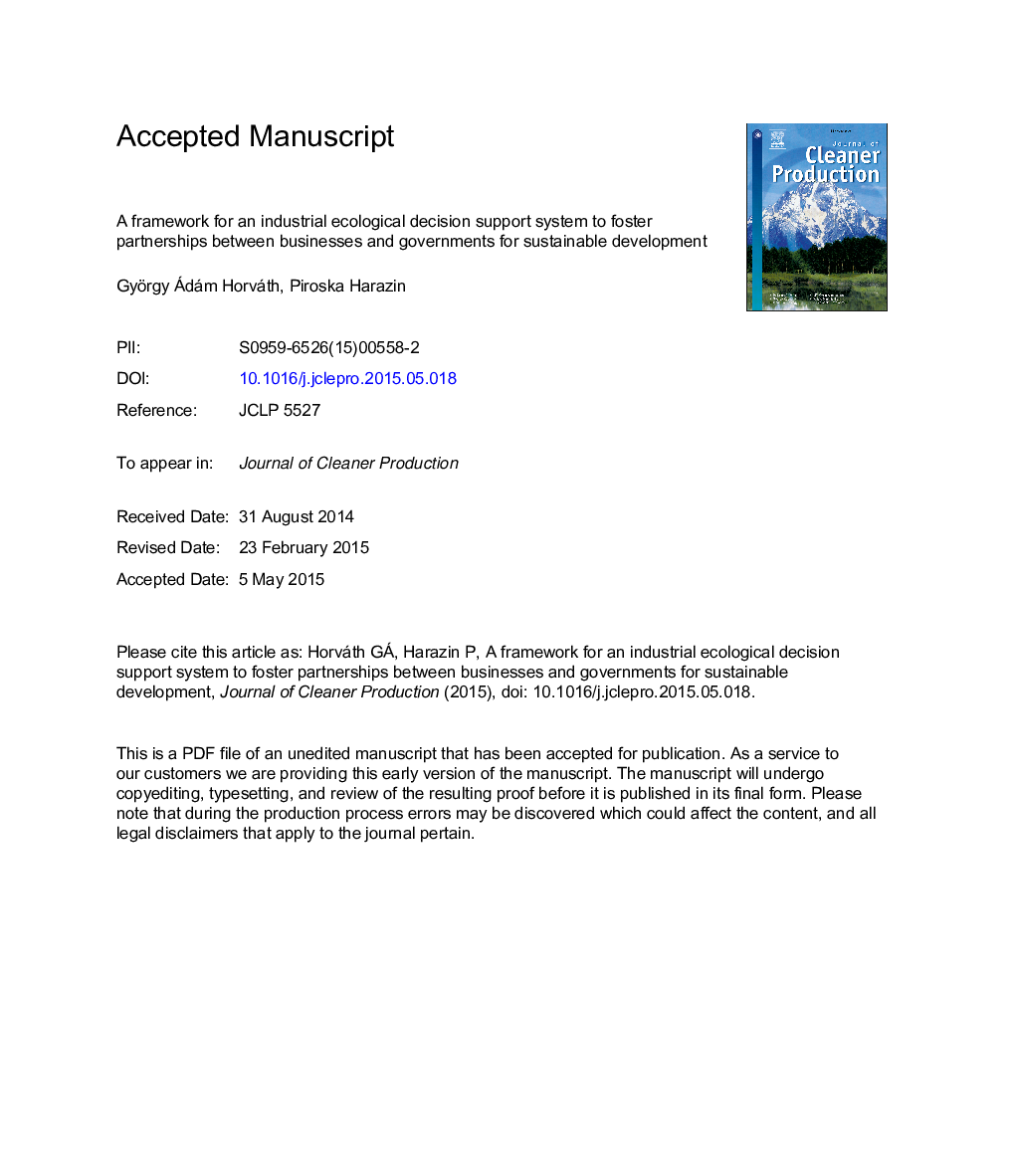| Article ID | Journal | Published Year | Pages | File Type |
|---|---|---|---|---|
| 8102728 | Journal of Cleaner Production | 2016 | 25 Pages |
Abstract
In the post-crisis approach to welfare states, the role of authorities as providers of welfare becomes more pronounced. As local authorities across the European Union are confronted with new and often unfavourable financing mechanisms, the performance and management of mandatory and voluntary duties must be reconsidered. As sustainable development and a more frugal management of public funds becomes more important, local authorities need to find new and innovative ways to mitigate their expenditures. The authors anticipate that local authorities will be interested in a more active participation in industrial ecological systems with advantages for sustainability. The fundamental question is: how could the process of finding potential partners for industrial ecological partnerships between businesses, and between businesses and the authority be facilitated? The authors review the concept of industrial ecology and its potential benefits; and also highlight the possible connection points between local governments and a business cluster, through an overview of mandatory and voluntary duties and responsibilities local governments must perform. The main answer to the research question is the framework of a novel decision support system (DSS) to facilitate the establishment of new connections and rationalise existing ones in pursuit of greater efficiency at reduced costs, whilst also promoting the aims of sustainable development. Finally, the authors consider the wider regional economic consequences of the DSS in the attractiveness of the eco-industrial cluster to new entrants, through the exploration of a set of plausible scenarios will be explored.
Related Topics
Physical Sciences and Engineering
Energy
Renewable Energy, Sustainability and the Environment
Authors
György Ádám Horváth, Piroska Harazin,
